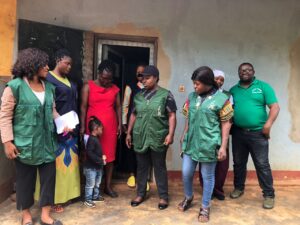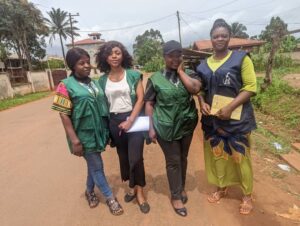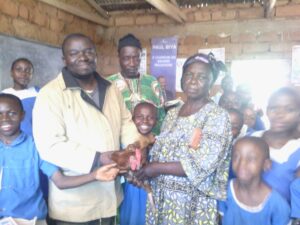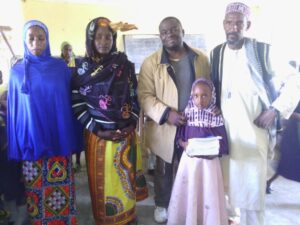GBV Prevention and Response
FOMCAM, based in Bamenda with grassroots roots dating back to 2008, has evolved into a key mental health and humanitarian actor, particularly active in the Northwest and Southwest regions of Cameroon. Their GBV Prevention and Response efforts are embedded in a broader mission to promote psychological well-being, dignity, and inclusion among the most vulnerable, such as survivors of rape, torture, and displacement.
Functioning as both a counselling hub and community outreach platform, FOMCAM integrates psychosocial support, case management, and awareness raising into its GBV interventions. Their services span counseling clinics, community dialogue, and training, all designed to help survivors rebuild resilience and reintegrate into their communities with dignity.
FOMCAM Community and Mental Health Organisation has been at the forefront of addressing Gender-Based Violence (GBV) in the Northwest and Southwest regions of Cameroon, where ongoing conflict and displacement have made women, girls, and other vulnerable groups increasingly susceptible to abuse and exploitation. Our GBV Prevention and Response Program is rooted in a survivor-centred, trauma-informed approach that prioritises dignity, safety, and psychosocial recovery for all.
Through our field-based interventions, we work closely with affected communities to raise awareness on GBV, challenge harmful social norms, and build local capacity to identify and respond to cases of abuse. Our team provides confidential psychosocial support, clinical counselling, case management, and safe referral services to help survivors navigate medical, legal, and protection systems with dignity and support.
We place a special focus on the inclusion of women and girls, especially those who are internally displaced, teen mothers, survivors of sexual violence, and persons with disabilities. These groups often face multiple layers of vulnerability, including stigma, isolation, and limited access to care. FOMCAM ensures that services are adapted to meet their specific needs, whether through mobile outreach, accessible spaces, or one-on-one counselling.
In addition to direct services, we also invest in community-based prevention by training local leaders, women’s groups, and service providers in psychological first aid, empathetic communication, and survivor referral pathways. These efforts are crucial in building long-term resilience and reducing the risks of future violence, especially in conflict-affected and underserved communities.
Our work is grounded in the belief that healing from GBV goes beyond emergency response—it requires creating safe spaces, building trust, and restoring hope. By integrating mental health and psychosocial support into every layer of our GBV programming, we not only respond to crises but also help communities rebuild stronger, safer, and more inclusive environments for women, girls, and all vulnerable people.




